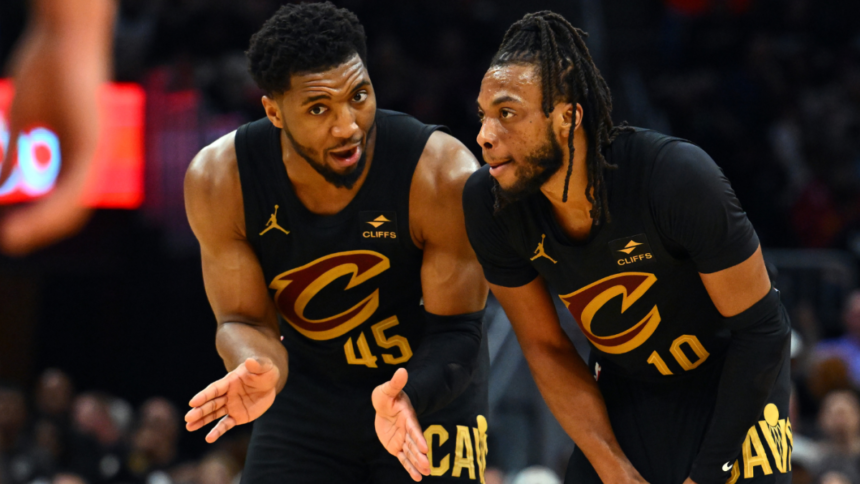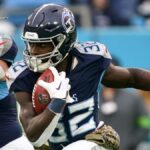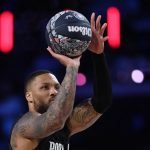The 2021-22 Cleveland Cavaliers had largely found the basis of their defensive identity. They badly needed another injection of scoring. They traded for Donovan Mitchell hoping that a partnership with Darius Garland would give them one of the best offensive duos in the NBA. But last season, the Cavs’ offense ranked 16th in the league.
Cleveland has underwhelmed in the last two postseasons as well. A disappointing first-round upset against the New York Knicks ended their 2023 season. They made it through the first round in 2024, but it took seven games against an Orlando Magic team even younger and less experienced. The Boston Celtics knocked them out from there.
Now the Cavaliers are at a crossroads. Donovan Mitchell is one year away from free agency. His fit with Garland clearly hasn’t worked. It’s hard to imagine both are back in Cleveland next season. So what should we expect on the trade front out of Cleveland’s two sharpshooting guards?
Why they’re in trade rumors
For Mitchell, it’s simple: he’s one year away from free agency. For years, rumors suggested that he wanted to play in a big market, with his hometown Knicks, who tried to land him in 2022, at the top of his list. The Cavaliers lost LeBron James to free agency twice. They aren’t going to let Mitchell walk for nothing. If he tells them that he does not plan to sign a contract extension, the Cavaliers are going to trade him. Given the draft picks they gave up to get him, that would be the only way they could get this era back on track without him.
Garland’s situation is tied to Mitchell’s. Through two years together, their fit just hasn’t worked. Garland made an All-Star team before Mitchell arrived. Mitchell led the Cavs to their best play of the season when Garland was injured. When the two shared the court last season, they scored 113.7 points per 100 possessions. That would have come out to 20th in the NBA over the full season, and they were better overall offensively when the two played separately. These are two ball-dominant guards who minimize one another when they play together. Garland seems to know it, as he will reportedly seek a trade if Mitchell does not. One of them probably needs to go.
Why the Cavaliers would keep them
It Mitchell extends, he stays. It’s that simple. Mitchell is the best player on the team. He is who Cleveland should be building around if he wants to be there. There’s no real questioning here. If he wants to be a Cavalier, he will be a Cavalier. If he doesn’t, he’ll play somewhere else.
Garland’s fate again relies on Mitchell’s. If Mitchell leaves, the Cavaliers can’t justify trading Mitchell. They’d have no remaining shot-creation, and if anything, they might look at Garland’s All-Star season before Mitchell’s arrival as a source of optimism. Perhaps he’s due for a bounce back if he can be a proper point guard again.
Could Cleveland keep both? Potentially. Inertia is a powerful force in the NBA, and despite widespread interest for Garland, the Cavaliers might simply decide to run last year’s roster back and hope that time and health work to their advantage. There’s an argument that it would. This core is still relatively young. Garland struggled through injuries last season. His deep 3-point shooting should make him at least a strong supporting piece for Mitchell even if he himself isn’t maximized off the ball. If there isn’t a strong offer out there, Cleveland might just shrug and say “we got hurt in the playoffs, maybe next year we’ll be better.”
What destinations make sense?
For Mitchell, we’re looking at big markets. If he’s comfortable in a small market, his best bet is probably Cleveland. For Garland, it’s any team looking for a primary ball-handler, regardless of market. The Cavaliers would probably prefer to get players back for either of them, but the right package of picks would at least be worthwhile as assets that they could use in later deals. Here are three fits for each.
Mitchell
Brooklyn Nets: The Knicks are probably off of the board for Mitchell at this point. Jalen Brunson already does the same things, so there’s no sense in doubling up on scoring guards. If Mitchell wants to be in New York, the Nets make more sense. They need a scorer to pair with Mikal Bridges, and the future Suns picks they own from trading Kevin Durant are very valuable assets. The Cavs would probably prefer to flip them for players, but that wouldn’t be especially difficult, and the Nets do have worthwhile role players like Dorian Finney-Smith and Cam Johnson to dangle themselves.
Miami Heat: The Heat probably don’t have the assets to land Mitchell at the moment, but remember, Jimmy Butler has been in the rumor mill this offseason too. There’s a world in which they deal Butler for things they could then redirect to Cleveland for Mitchell. The idea would be to find a younger co-star for Bam Adebayo than Butler, who is nearing the end of his stellar career. Miami has been interested in Mitchell for years, and with young players like Jaime Jaquez and Nikola Jovic, they have a nice starting point for an offer already.
Los Angeles Lakers: The Lakers don’t have a premium young player to offer, but Austin Reaves and Rui Hachimura would likely offer some appeal, and they have three first-round picks to move as well. Mitchell, by most reporting, is the preferred offseason target for the Lakers. He could form a big three in Los Angeles with LeBron James and Anthony Davis, but eventually move into the spotlight as James retires and Davis ages out of superstardom.
Garland
San Antonio Spurs: Garland and Victor Wembanyama are a match made in heaven. The Rookie of the Year badly needs a point guard who can throw him lob passes and set him up in the post. Garland is best-suited playing next to a star defensive big man given his deficiencies on that end of the court. There isn’t a better one for the long haul than Wembanyama. The Cavaliers would ask for Devin Vassell. The Spurs would say no. But there would be a reasonable middle ground around players like Jeremy Sochan and Keldon Johnson along with valuable future first-round picks from the Hawks that came in the Dejounte Murray trade.
New Orleans Pelicans: The Pelicans seem to overlap with every team trading a guard or a big because, unlike the rest of the league, they have an abundance of wings. A Garland-for-Brandon Ingram style swap would give the Pelicans the point guard they need and balance out Cleveland’s roster by redirecting resources out of the backcourt. Cleveland would probably prefer the cheaper Herb Jones or Trey Murphy, but it’s hard to imagine the Pelicans offering either when Zion Williamson already handles the ball as much as he does.
Orlando Magic: The Spurs have one star defender to put around Garland. The Magic have several. Orlando’s roster is built around long, rangy athletes, and that led them to one of the best defensive rankings in the NBA. If Cleveland trusts Franz Wagner’s jumpshot, this is another possible roster-balancing trade, especially since Jalen Suggs can defend either guard spot. If they don’t? There are other options here, like Anthony Black and future draft picks.
What is the latest reporting?
By all accounts, Mitchell is reasonably likely to extend with Cleveland this offseason. That isn’t a certainty, but most of the reporting so far this offseason hints that he is planning to stay put. As for Garland, The Athletic reported after Cleveland’s season ended that his agent, Rich Paul of Klutch Sports, would speak with the team about moving Garland if Mitchell decides to extend. That doesn’t mean he’s absolutely moving, as Yahoo’s Jake Fischer reported that Cleveland is expected to hold onto its core foursome this offseason. The right offer can change everything, but for now, Cleveland is signaling that it wants to run it back next season.











